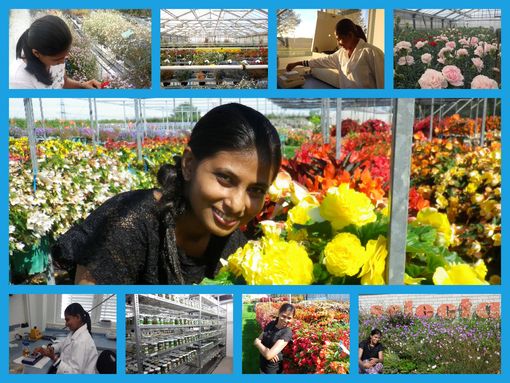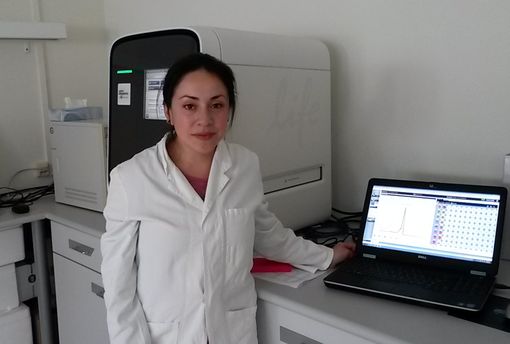Nearly 800 million people around the world suffer from hunger. Developing countries in particular still lack the requisite knowledge to ensure ample food production. Which plants are suitable for which geographic locations? When is the best time to harvest? How can new plant varieties help? Students in the International Horticulture Master’s programme at Leibniz Universität Hannover spent their semester break in search of answers to these critical questions.
For four weeks, the visiting students completed internships at German horticulture companies. The internships were arranged by the students’ professors or by the International Horticulture programme’s administrative office. “When selecting a company for the internship we make sure to consider the individual scholarship holder and his/her specific area of research,” explains Svenja Czapek, from the programme administrative office. “Usually these students have already determined an area of specialisation in their home countries.”

Sewwandi Gayani Chandrasekera gained insight in ornamental plant breeding in the greenhouse © private
Very positive feedback
International Horticulture programme director Professor Hartmut Stützel is accustomed to receiving positive feedback from both the students and the host companies. “The students very much appreciate the chance to apply their research knowledge to a real world situation in a real world company,” says Stützel. “At the same time, they gain some insight into what could later be their everyday working life.”
For the students it is an opportunity to broaden horizons. They not only have the chance to apply and deepen their knowledge, but can also improve their German language skills, which is an important component of the internships. “I tried to speak German and, believe it or not, it actually worked!” reports Sewwandi Gayani Chandrasekera from Sri Lanka. “Everyone was able to understand me and even complimented me on my German.”
The German work environment
During the internship students also gain insight into working life in Germany. Paloma Morales from Chile worked in a plant breeding company in Schleswig-Holstein. “I really enjoyed the internship,” says Morales. “Germans are very organised and efficient in their work; in Chile it is often quite different.” During her internship, Morales focused on the development of new potato varieties for future cultivation. After completing the Master’s programme, Morales first wants to continue working and conducting research in Germany so that she can continue building her knowledge base before returning home. “In Chile, plant breeding is not as far along as it is here in Germany and there is little financial support for plant breeding programmes” says Morales. “But in Germany I can work with state-of-the-art lab equipment and that is really a plus for my research.”
From internship to own laboratory
Sewwandi Gayani Chandrasekera also learned a lot during her internship at an ornamental plant breeding company, where her job was to clone plant tissue and cell cultures. Chandrasekera’s dream is to open her own laboratory back home in Sri Lanka. “During my internship and studies in Germany I learned a great deal about tissue cultivation,” says Chandrasekera. “This is a good basis for starting my own company in Sri Lanka.”
Read more about the Master’s programme: Website and facebook






